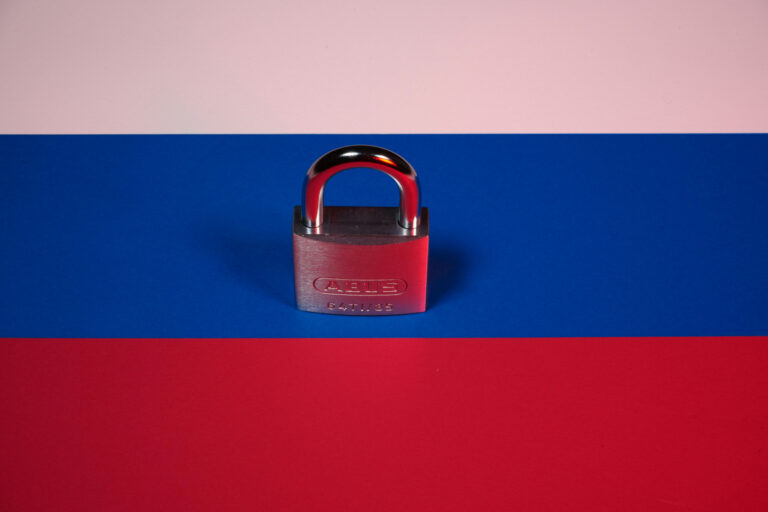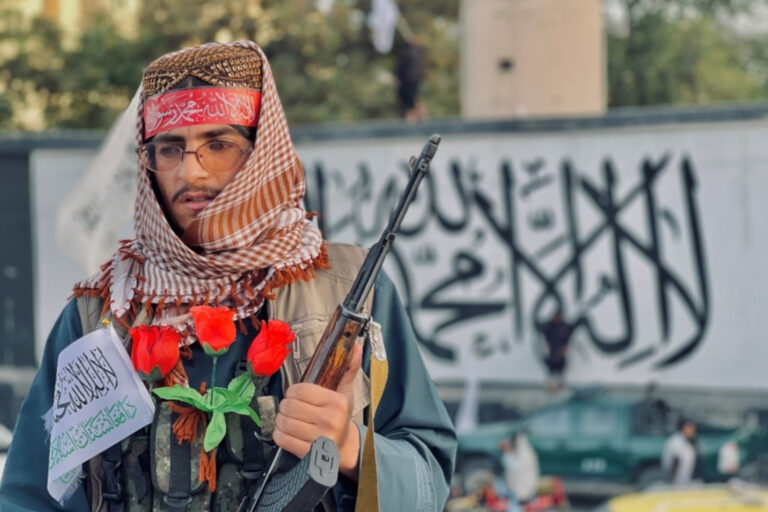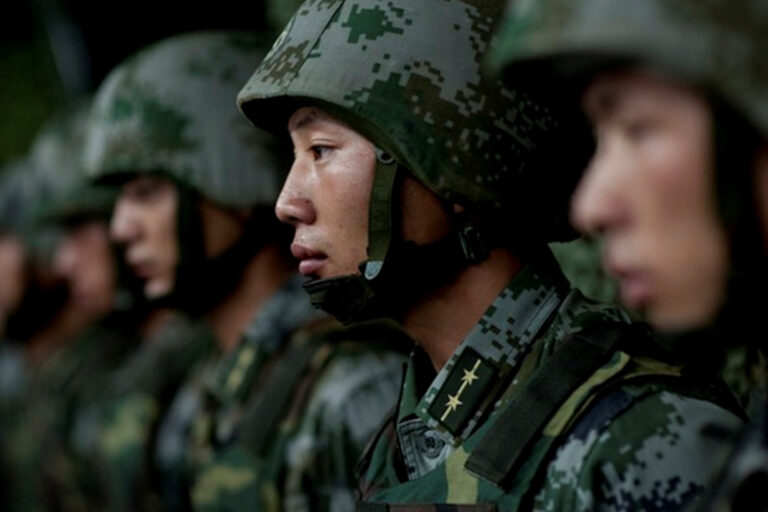Altamira Square, one of the meeting points of the “Mother of All Protests” march, April 19, 2017.*
Vincent A. Dueñas
Abstract
This research paper seeks to understand the possibilities for the continued viability of the Chavista party after the end of Nicolas Maduro’s presidency. The rise of an opposition majority in the Venezuelan legislature in December of 2015 resulted in the most concrete protest of President Maduro’s presidency and possibly the rejection of Hugo Chavez’s socialist state legacy.
Chavez rose to dominate Venezuelan politics because he seized on the plight of the previously untapped electoral populations in the poorest economic class in the country. If the political and social situation in Venezuela remains stable through to the 2018 presidential election, then the Chavista party, the United Socialist Party of Venezuela (PSUV), can continue its domination of Venezuelan politics by exploiting the gaps in the opposition’s fractured platform.
PSUV’s best course of action would be to bide time for one electoral cycle to place blame for austerity measures on the opposition and allow the party time to distance itself from Maduro’s tainted legacy. For the opposition, its most important goal is to truly consolidate under a unified platform, shed its divisions, and launch a concerted political campaign that simultaneously coopts the sentiment of progress that Chavismo still retains, but still communicates the necessity for difficult policies needed to get Venezuela on solid economic footing.
Introduction
This paper will begin by examining the components of Hugo Chavez’s meteoric rise to power in Venezuela and assess the areas of domestic and foreign policy that enabled him to authoritatively consolidate his power. Foreign policy will be explored only to the extent that it enabled him to inspire his domestic base, and will not be analyzed in regards to how effective it was on the international stage. The paper will then assess Nicolas Maduro’s choice as a successor for Chavez and his performance during his tenure as president. The final section will assess the current state of the United Socialist Party of Venezuela (PSUV) and consider possibilities for Chavez’s legacy of socialist ideology and policies, known as Chavismo, after the end of Maduro’s presidential tenure.
Chavez’s Rise to Power
Hugo Chavez arrived on the political scene first in 1992 when he led a military coup as a mid-career officer that wanted to overthrow the political establishment in light of the Caracazo of 1989. The Caracazo was the public outrage, protests, and riots that resulted from the abrupt increase in bus fares on a Venezuelan population that felt the government and political parties did not represent their interests. Chavez was jailed for his role in the coup attempt, but a curious sequence of events occurred which allowed him to make a public statement on live television after he was detained. This statement, known as the “Por Ahora” speech, signaled his desire to continue the struggle in Venezuela after his detainment.[1] Chavez was hailed as a hero because he had captured the outrage of the Caracazo and was viewed by supporters as trying to empower the middle class and poor class by giving them a voice, subsequently resulting in his jailing by the ruling elites.
Chavez was released in 1994 and immediately began establishing a movement to organize the underrepresented class in Venezuela. Chavez’s public defiance had canonized him as a fighter and immediately drew supporters to his cause. Additionally, his shrewd political posturing resulted in his movement being named the Bolivarian Revolution, in honor of the elite liberator of South America, Simon Bolivar. Chavez alluded to Bolivar to lacquer the burgeoning class struggle with a veneer of an indigenous liberation movement. While the indigenous population in Venezuela is nominal, Chavez nonetheless capitalized on this language to weave a narrative of the Bolivarian Revolution as one fighting for retribution against perceived “imperialist powers” that exploited indigenous resources, such as the US.
In a major upset, he won the presidency in 1998 through a combination of skillful political maneuvering that involved mobilizing the previously untapped poor and middle classes and bargaining with fringe business leaders that hoped to benefit their own causes by supporting an atypical candidate with new, broad appeal. The other key to Chavez’s stunning upset was the inability for the Democratic Action (AD) party and the Social Christian (COPEI) party, the two major political parties in Venezuela, to offer a valid candidate to compete against Chavez’s message. COPEI and AD had almost become indistinguishable as separate parties and both were complicit in the historic corruption and economic decline that had led to Chavez attempting a coup in the first place.[2] Once elected, and wasting no time, Chavez called for an emergency assembly and asked for special powers which enabled him to stack the government with Chavista supporters and began ruling by decree. It became clear at this point that he would not respect Venezuelan political norms and maintain the power hierarchy that had kept AD and COPEI in power for so long. Chavez began to exhibit the underpinnings of a hybrid regime, utilizing democratic procedures to advance authoritarian political backsliding.[3]
Following the establishment of his tenure, he made a trip to Cuba in late 1999 and began the key relationship that would expand his international reach by partnering with Fidel Castro. In 2000, Chavez’s party won the legislature and took almost all the seats. In 2002, a business federation known as Fedecamaras began mobilizing the political will necessary to attempt their own coup d’état, which they launched in late 2002. Chavez resigned his post and for the next 48 hours worked to consolidate his authority over the military, ultimately returning to power in a swift move, but not before the US had recognized the new government led by Pedro Carmona.[4] The fallout of this coup attempt critically soured Chavez’s relationship with the US and led to his further vilification of the US. He used the event as the social underpinning of his Bolivarian Revolution against the “Yankee imperialists,” which further marshalled his base of supporters. Accordingly, in 2006, Chavez organized the Bolivarian Alliance of Latin America (ALBA) to serve as a counterweight to the Free Trade Agreement of the Americas (FTAA) – a Pan-American economic trade bloc. Chavez’s ALBA was more importantly used by his oil-rich government as a counterweight to the hegemonic political influence of the US in the region.[5]
Ideologically, Chavez’s goal was to restructure the system of alliances in the Western Hemisphere, and he accomplished this through the creation of the ALBA structure and its ability to partner the Venezuelan government with transnational organized crime (TOC) and terrorist networks. Available evidence indicates, for example, that Chavez partnered with the Revolutionary Armed Forces of Colombia (FARC), Hezbollah, Iran, the Basque Nationalist Organization (ETA), and major drug trafficking organizations, among others, during his reign. Through these state-sponsored relationships, he aimed to enhance stability, predictability and risk minimization to obtain strategic objectives through questionable means.[6] Essentially, Chavez began to leverage the partnership with TOCs and terrorist organizations to raise capital and undermine US regional influence.[7]
Until this historical point, Chavez had enjoyed the benefit of high oil prices and a nationalized oil industry, which allowed him to redistribute a certain percentage of the revenue to fund the development of social programs and limited infrastructure.[8] By 2007, Chavez’s programs were no longer having the impact that he expected, whereby he unexpectedly lost a referendum for other programs by a narrow margin. Plan Bolivar, 2008-2013, was a plan enacted by Chavez to dramatically reduce private industry by nationalizing its remaining vestiges, thus completing the transformation of Venezuela into a socialist state. Already a “petrostate,” meaning that the majority of Venezuela’s revenue in trade came from petroleum exports, Chavez inched the country further from industrial diversification to redistribute oil profits to its citizens in a socialist model. Francisco González accordingly notes in Creative Destruction: Economic Crises and Democracy in Latin America that “this latest upsurge (of global commodities prices) provided the material means for massive growth in the appeal of and support for nationalist populist leaders like Hugo Chavez…who called redistribution on the basis of turning part of the windfall gains from burgeoning commodity-export prices into a social policy.”[9] In simple terms, the socialist experiment in Venezuela replaced foreign investment and existing national industrial capacity with a singular vision of nationalizing most of the country’s industries. The socialist state then capitalized on its immense oil reserves and high oil prices to provide new services and improve existing services. Without investment in other industries and a faulty economic policy, the drop in oil prices exacerbated an imbalanced economic posture that was compounded by Chavez’s death in 2013.
Maduro’s Failed Tenure
It is fundamentally unclear how Hugo Chavez decided to select Maduro as his successor, but it was a deeply unpopular choice that echoed DeGaulle’s famous prophecy: “Apres moi, le deluge” (after me, comes the flood). Chavez thus did not bother to protect his own legacy, but rather left it to fate. In fact, even after Chavez had signaled his preference for Nicolas Maduro, his then-vice president, there remained continued hesitation within the Chavista party toward his choice.[10]
Today, President Maduro and the PSUV are experiencing a critical breakdown in leadership of the country. The failed economic policies of Chavez’s “21st Century Socialism” platform ultimately resulted in the current unprecedented shortages of basic medicines, food, and electricity, ushering in the first political loss for Chavez’s hand-picked successor.[11]
The opposition movement, once considered irrelevant and which remains fractured today, rose to gain the majority in the legislature in December 2015 and has been actively seeking constitutional means to unseat President Maduro. The de facto head of the opposition is the Democratic Unity coalition (MUD), which has been steadily broadening its support, even among the poor who historically supported Chavez.[12] President Maduro has, in turn, chosen to continue Chavez’s tradition of autocratic rule through his enactment of emergency powers that allow him to rule by decree, thereby further eroding the powers of Venezuela’s remaining democratic institutions. The country is experiencing a humanitarian crisis with widespread protests and counter-protests that have at times become violent, and which threaten to destabilize the region.
President Maduro’s government has also been inept at stemming the inflation caused by the post-2008 decline oil prices, and has not proposed a viable economic solution that resolves the inconsistencies of Venezuela’s current socialist model. Despite these issues, Venezuela sits on the world’s largest oil reserves – and thus immense economic potential – constituting approximately 296 billion barrels of oil. Approximately 96% of the Venezuela’s export earnings come from oil; however, complicating Venezuela’s fiscal situation is the sustained low price of oil, which has dropped over 50% since 2014.[13] Additionally, it is currently estimated that inflation has gone up at least 500% since March 2015 because the country’s revenue is still tied to oil prices, which remain low.[14]
As stated above, a result of the economic policies implemented is that the country does not have the capacity to provide necessities: medical and food supplies are now in critically short supply. Approximately 80% of key medicines are not available.[15] Grocery stores are nearly unstocked due to their inability to procure imported goods. Electricity shortages have resulted in reduced daily work hours and workweeks. The resultant shortages have also led to an enlargement of the local black market along the border of Colombia as Venezuelans traverse the border to replenish their supplies. The dichotomy between the general population scavenging for subsistence and the evidence of corruption by the political elite is striking.
One example of such corruption was uncovered by the US Treasury Department’s Financial Crimes Enforcement Network (FinCEN), which alleged that the Venezuelan state oil company, Petroleos de Venezuela (PDVSA), has been laundering money through the Banc Privada D’Andorra (BPA) to the sum of $2 billion over a two-year period.[16]
The statement noted multiple billions of dollars’ worth of money laundering activity in the bank, benefiting a host of actors, including Russian and Chinese organized crime and PDVSA. The Treasury notice reported that BPA and PDVSA set up shell companies and ‘complex financial products to siphon off funds from…PDVSA. BPA processed approximately $2 billion in…this money laundering scheme.’[17]
This evidence of PDVSA’s role in money laundering, combined with the simultaneous borrowing of over $49 billion in loans from the Chinese government, suggests that Venezuela is either experiencing extreme mismanagement or looting incredible amounts of money amid an extreme economic crisis.
President Maduro’s handling of the economic crisis, in the form of poorly implemented price controls and artificial stabilization of the Venezuelan Bolivar has crippled the country and reduced popular support for the PSUV. Consequently, “Madurismo” was decisively rejected in the 2015 elections, and marked the first challenge to Chavez’s party by a broad opposition movement.
To date, President Maduro has chosen to use the economic crisis as the lynchpin to erode the constitutional powers of the legislature and use the military to maintain public order. He has staved off a referendum through multiple strategic tactics of obstructionism: namely, declaring opposition referendum
President Maduro, in response to an increasingly vocal and defiant opposition, installed new judges that were deemed loyal Chavistas and began reigning in the constitutional power of the parliament. He simultaneously instrumentalized the economic emergency to consolidate power and rule by decree. A Revocatory Referendum was called for by the opposition and subsequently was denied by President Maduro through the Judiciary.
Additionally, regional elections were canceled this past year by President Maduro to prevent any further increase in opposition party members in government positions. Military response has been measured, ultimately staying out of the public eye to avoid appearing disloyal to the President. Bands of militias, however, that were originally conceived by Chavez as citizen fighters to defend against a US invasion today serve as intimidators that are not directly linked to the state but regularly clash with the opposition to suppress their voice.[21]
Lastly, available evidence indicates that suspicions of corruption historically sanctioned by Chavez have continued to go unchecked. It therefore is reasonable to assume that President Maduro and members of the ruling PSUV, which have been connected to narco-trafficking and illicit oil exports in the past, will continue to do so. In fact, in 2015, nephews of Maduro’s wife were arrested for attempting to sell cocaine to US agents in Haiti.[22] Furthermore, Maduro and high-level members of PSUV are most likely unwilling to cede any political ground to the opposition at least until the next election, for fear of exposing deeper illicit ties that currently pervade the government.
Vincent A. Dueñas is a recent graduate of the Master of International Public Policy degree program at the Johns Hopkins School of Advanced International Studies in Washington, DC. He is a US Army Foreign Area Officer focused on Latin America with experience living and traveling throughout the region. This paper was written to fulfill a course objective and the views reflected are his own and do not represent the opinion or official position of the United States government or any of its agencies.
*Image by Jamez42
Licensed for use under Creative Commons Attribution-ShareAlike 4.0 International (https://creativecommons.org/licenses/by-sa/4.0/legalcode)
________________________________________________________________________________
[1] Maryuri Varela, “El ‘Por Ahora’ de Chávez que se convirtió en el ‘Para Siempre’ del pueblo,” Gobierno Bolivariano de Venezuela, February 4, 2016, http://minci.gob.ve/2016/02/el-por-ahora-de-chavez-que-se-convirtio-en-el-para-siempre-del-pueblo/.
[2] Kurt Weyland, “Will Chavez Lose His Luster?” Foreign Affairs, November 1, 2001, https://www.foreignaffairs.com/articles/venezuela/2001-11-01/will-chavez-lose-his-luster.
[3] Javier Corrales, “The Authoritarian Resurgence: Autocratic Legalism in Venezuela,” Journal of Democracy 26, no. 2 (2015): 37-38, http://search.proquest.com/docview/1712243874?accountid=11752.
[4] Francisco Enrique González, Creative Destruction?: Economic Crises and Democracy in Latin America (Baltimore: Johns Hopkins University Press, 2012), 228.
[5] Joseph S. Tulchin, Latin America in International Politics: Challenging US Hegemony, (Boulder: Lynne Rienner Publishers, 2016), 12.
[6] Douglas Farah, “Convergence in Criminalized States: The New Paradigm,” in Beyond Convergence: World without Order, ed. Hilary Matfess and Michael Miklaucic (Washington, DC: Center for Complex Operations, National Defense University, 2016) 181-182.
[8] González, Creative Destruction?: Economic Crises and Democracy in Latin America, 227.
[10] Javier Corrales, “Chavismo after Chavez,” Foreign Affairs, January 4, 2013, https://www.foreignaffairs.com/articles/venezuela/2013-01-04/chavismo-after-ch-vez.
[11] Tulchin, Latin America in International Politics: Challenging US Hegemony, 140.
[12] Peter Wilson, “Chavismo in Pieces: Why Maduro Lost and What Will Come Next,” Foreign Affairs, December 7, 2015, https://www.foreignaffairs.com/articles/venezuela/2015-12-07/chavismo-pieces.
[13] HBO and Council on Foreign Relations, What to do about Venezuela, Web Video Series, 1:13:30, October 27, 2016, http://www.cfr.org/venezuela/hbo-do-venezuela/p38427.
[16] Farah, “Convergence in Criminalized States: The New Paradigm,” 184.
[18] HBO and Council on Foreign Relations, What to do about Venezuela.
[19] Ibid.
[21] Diego R. Guelar, La Invasión Silenciosa: El Desembarco Chino En América Del Sur (Argentina: Debate, 2013), 182.
[22] Wilson, “Chavismo in Pieces: Why Maduro Lost and What Will Come Next.”



